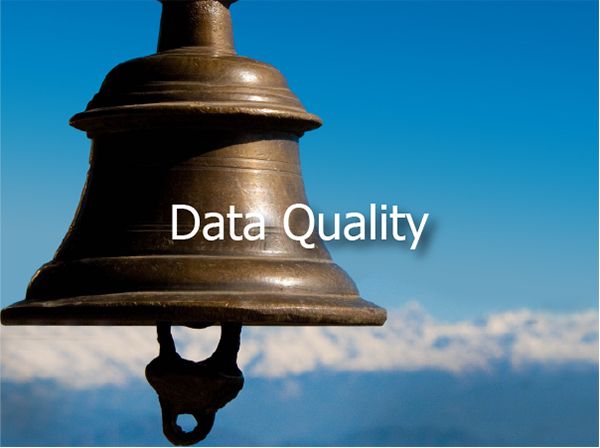Data quality is a measure of the condition of data based on factors such as accuracy, completeness, consistency, reliability and whether it’s up to date. Measuring data quality levels can help organizations identify data errors that need to be resolved and assess whether the data in their IT systems is fit to serve its intended purpose.
References
-
-
Data quality is defined as the degree to which data meets a company’s expectations of accuracy, validity, completeness, and consistency. Learn more!🔗alation.com
-
 Data Quality (DQ) describes the degree of business and consumer confidence in data’s usefulness based on agreed-upon business requirements.🔗DATAVERSITY
Data Quality (DQ) describes the degree of business and consumer confidence in data’s usefulness based on agreed-upon business requirements.🔗DATAVERSITY -
Part 1 in a series of blogs about the importance and the value of consistent, comprehensive, and pervasive approach to data quality🔗informatica.com
-
 Discover how data quality ensures your organization’s data is fit for purpose and helps data governance, analytics, and AI/ML deliver trustworthy results.🔗Informatica
Discover how data quality ensures your organization’s data is fit for purpose and helps data governance, analytics, and AI/ML deliver trustworthy results.🔗Informatica -
 Data quality has a profound impact on the success of an organization. In this blog post, we highlight what it is, why it matters, what challenges it presents, and key practices for improving it.🔗metaplane.dev
Data quality has a profound impact on the success of an organization. In this blog post, we highlight what it is, why it matters, what challenges it presents, and key practices for improving it.🔗metaplane.dev -
 Explore what is Data Quality with definition. Read on to understand the dimensions of data quality, its charateristics, how to improve it and the best practices to be followed.🔗Simplilearn.com
Explore what is Data Quality with definition. Read on to understand the dimensions of data quality, its charateristics, how to improve it and the best practices to be followed.🔗Simplilearn.com -
 Learn why data quality is important to businesses, and get information on the attributes of good data quality and data quality tools and techniques.🔗Data Management
Learn why data quality is important to businesses, and get information on the attributes of good data quality and data quality tools and techniques.🔗Data Management -
 Data quality measures your accuracy and ease of use based on the following characteristics: accuracy, freshness, completeness, consistency, and uniqueness.🔗ThoughtSpot
Data quality measures your accuracy and ease of use based on the following characteristics: accuracy, freshness, completeness, consistency, and uniqueness.🔗ThoughtSpot

 Quality
Quality